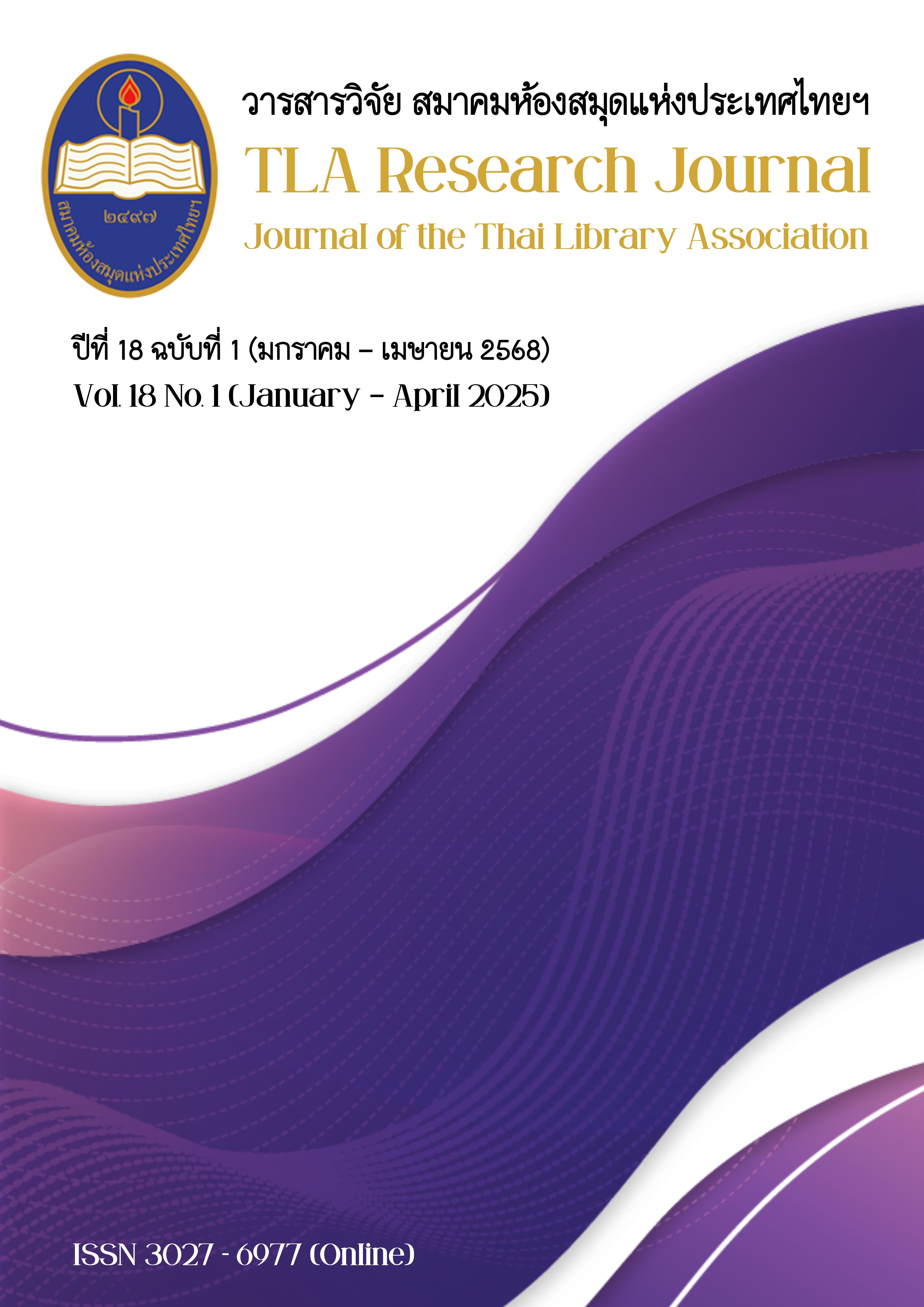Phi Bung Tao: Local wisdom living in Thai Tradition
Main Article Content
Abstract
This research paper aims to 1) investigate the context of local wisdom related to the Phi Bung Tao tradition and 2) analyze the transformations in the local wisdom of the Phi Bung Tao tradition. The research location is Ban Hai Tak, Lat Khang Subdistrict, Phu Ruea District, Loei Province. Qualitative methods were employed, including in-depth interviews, focus groups, and brainstorming workshops, with data analysis conducted through descriptive narration.
The research findings revealed that 1) Ban Hai Tak is a village rich in natural resources, with most residents engaged in agriculture, particularly growing various cool-climate crops, including local gourds, which are significant for the region's economy. The Phi Bung Tao tradition incorporates indigenous knowledge through the creation of gourd masks. 2) The changes in the local wisdom of the Phi Bung Tao tradition include: 2.1) Beliefs: The community expresses gratitude and worships sacred spirits for protection from danger. 2.2) Conservation and Restoration: This involves spreading knowledge while enhancing its economic value. 2.3) Education: It helps young individuals gain knowledge and understanding of their cultural heritage and way of life. 2.4) Economy: It supports the growth of the local economy. 2.5) Integration with Modern Culture: This has been incorporated in order to develop tourism products. 2.6) Adaptation to Societal Changes: There is a blend of traditional beliefs and contemporary culture.
Article Details

This work is licensed under a Creative Commons Attribution-NonCommercial-NoDerivatives 4.0 International License.
บทความทุกเรื่องที่ลงตีพิมพ์จะได้รับการตรวจอ่านโดยผู้ทรงคุณวุฒิ ความคิดเห็นและบทความที่ปรากฏในวารสารนี้ เป็นของผู้เขียนซึ่งมิใช่เป็นความคิดเห็นของคณะผู้จัดทำ และมิใช่ความรับผิดชอบของสมาคมห้องสมุดแห่งประเทศไทยฯ การนำบทความในวารสารนี้ไปตีพิมพ์ซ้ำต้องได้รับอนุญาตจากคณะผู้จัดทำ
All articles submitted for publication will be reviewed by the academic reviewers. The editorial board and TLA claim no responsibility for the content or opinions expressed by the authors of individual articles or columns in this journal. Reprinting of any articles in this journal must be permitted by the editorial board.
References
Ariyasuntorn, S. (2015). Conservation or restoration: tradition, local wisdom, national and local art and culture, according to the law on culture: case study on the Establisement of the Cultural Council by National Culture Act, B.E. 2553 (2010) (Master’s an Independent Study). Thammasat University, Thailand. [In Thai]
Artsomban, W. (October 1, 2024). สัมภาษณ์ [Interview]. [In Thai]
Boonyakanjana. C. (2014). Local information management. Nonthaburi: Sukhothai Thammathirat University. [In Thai]
Dailynews Online. (April 16, 2024). ‘สงกรานต์’ ชาวเลยร่วมใจแห่ ‘ผีบุ้งเต้า’ สรงน้ำพระพุทธนาวาบรรพต-ภูเรือ [‘Songkran’ Local Loei People dressed as ‘Phi Bung Tao’ joined the parade to celebrate Songkran Festival by sprinkling Phra Bhuddha Nava Bunphot with scented water in Phuruea District, Loei Province, Thailand]. Retrieved from https://www.dailynews.co.th/news/3349449/
Konhan, P., Pakotang, J. and Phoglin, S. (2015). Model of participation of the school and the community in applying local wisdom in a learning process at the primary educational level. Graduate Studies Journal, 12(56), 149-164. [In Thai]
Lengwiriyakul, K. and Jarernsiripornkul, S. (2017). Development approach on tourism cluster of Chai Khong road, Chiang Khan district, Loei province. MBA-KKU Journal, 10(1), 220-246. [In Thai]
Nokkaew, J. and Khwanriang, P. (2024). Knowledge management of local wisdom for development of creative and innovative community. Pathum Thani: Digital Printing Production and Management Learning Center, Valaya Alongkorn Rajabhat University under Royal Patronage. [In Thai]
Phoungmanee, T., Charoensuk, K. and Sumran, S. (2022). Identity and aesthetics of Phi Boong Tao Masks influencing tourism development of Hi-Tak Village, Phu Ruea District, Loei Province. Mangrai Saan Journal, 10(2), 67-81. [In Thai]
Phuthed, U. (2019). Knowledge management of local wisdom in occupation of Tumbon Thap Krit Chum Seang District Nakhon Sawan Province. Humanities and Social Sciences Nakhonsawan Rajabhat University Academic Journal, 5(1), 313-330. [In Thai]
Prommanot, P., Tubporn, H. and Sachakul, K. (2019). Pound nets fisher: The local wisdom and inheritance of Samutsongkram fisheries culture. Silpakorn University Journal, 39(2), 50-66. [In Thai]
Puangpejara, K. and Supasaktamrong, C. (2022). Cultural tourism promotion with local wisdom and cultural capital of Thai Phuan Community at Thanon Yai, Lop Buri Province. Journal of Humanities and Social Sciences Mahasarakham University, 41(6), 49-65. [In Thai]
Royal Society of Thailand. (2013). พจนานุกรมฉบับราชบัณฑิตยสถาน พ.ศ. 2554 [Royal Institute Dictionary, 2011]. Bangkok: Royal Society of Thailand. [In Thai]
Seesalab, N., et al. (1998). Guidelines for the promotion of Thai wisdom in educational management. Bangkok: Office of the National Education Commission. [In Thai]
Sri-On, S. (2022). The imaginative ghost masks in the Buddhist cultures on both sides of Mekong. Wiwitwannasan Journal of Language and Culture, 6(3), 87-104. [In Thai]
The Secretariat of the Senate. (2017). รัฐธรรมนูญแห่งราชอาณาจักรไทย พุทธศักราช 2560 [Constitution of the Kingdom of Thailand, B.E. 2560]. Bangkok: The Secretariat of the Senate. [In Thai]
Wantrong, S. (2017). Local information management. Surin: Surin Rajabhat University. [In Thai]


